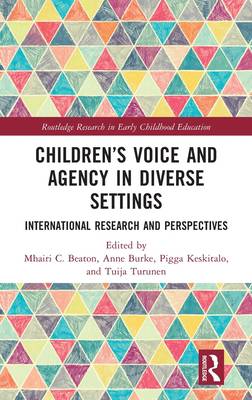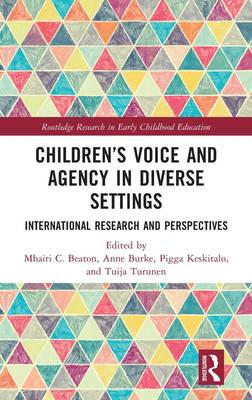
- Retrait gratuit dans votre magasin Club
- 7.000.000 titres dans notre catalogue
- Payer en toute sécurité
- Toujours un magasin près de chez vous
- Retrait gratuit dans votre magasin Club
- 7.000.0000 titres dans notre catalogue
- Payer en toute sécurité
- Toujours un magasin près de chez vous
Children's Voice and Agency in Diverse Settings
International Research and Perspectives
290,45 €
+ 580 points
Description
This book outlines the key findings from the ADVOST project and other international projects that examine how educational practitioners have utilised theoretical notions of voice and agency to enhance the social inclusion and wellbeing of children within their settings.
Spécifications
Parties prenantes
- Editeur:
Contenu
- Nombre de pages :
- 198
- Langue:
- Anglais
- Collection :
Caractéristiques
- EAN:
- 9781032420509
- Date de parution :
- 16-04-24
- Format:
- Livre relié
- Format numérique:
- Genaaid
- Dimensions :
- 156 mm x 234 mm
- Poids :
- 476 g

Les avis
Nous publions uniquement les avis qui respectent les conditions requises. Consultez nos conditions pour les avis.





